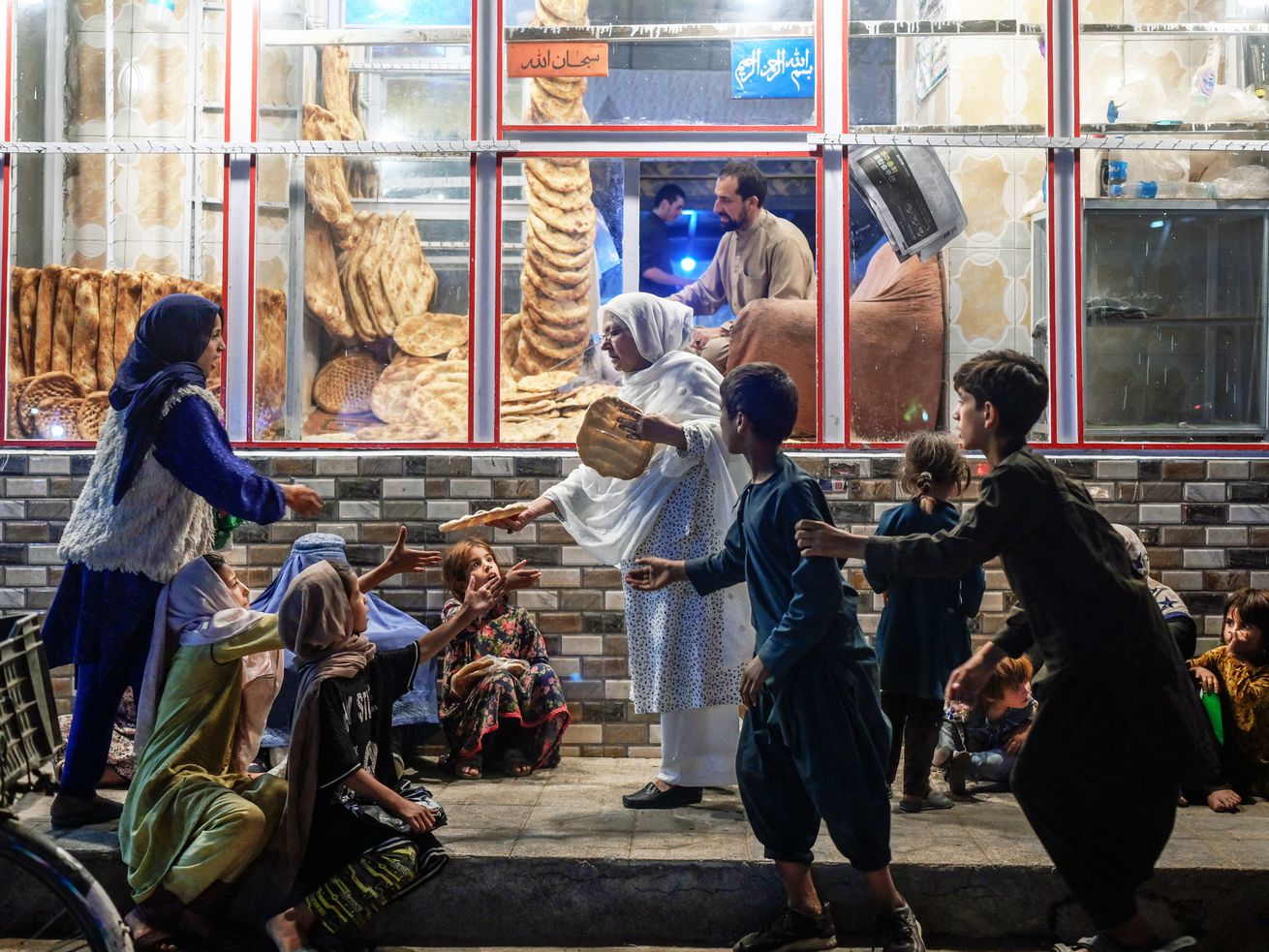
In Chungking Express and Rebels of the Neon God, the vibes are melancholy but incredibly aesthetic.
Years before I watched my first film from the Hong Kong director Wong Kar-Wai, I encountered a collection of stills on Tumblr from his 1994 film Chungking Express. I reblogged the images onto my blog without any previous knowledge of it, on the sole basis of the film’s aesthetics. The images featured one of its protagonists, a boyishly handsome Takeshi Kaneshiro, holding a corded phone up to his left ear with a listless gaze. Below him, the subtitles read: “Password is ‘Love you for 10,000 years.’”
This peculiarly romantic line of dialogue is among a handful of recognizable Wong Kar-Wai scenes that, years later, frequently surface on my social media feeds. Stills like these have helped spark modern online intrigue toward a certain genre of East Asian cinema and the (primarily male) directors that compose this category. Even though the average American moviegoer doesn’t seem to have much of an appetite for foreign films, a subset of Western viewers appears to be more receptive to East Asian works — at least according to social media.
In recent years, too, more Asian American directors are producing films that pay stylistic homage to influential East Asian works. One of the multiverses in Everything Everywhere All At Once, for example, was heavily inspired by Wong’s In The Mood for Love, a film about two beautiful people quietly yearning, but never acting upon their unrequited love. (Various posts on Twitter have gone viral for showcasing the two works’ stylistic parallels.) Alan Yang’s Tigertail, released on Netflix in 2020, attempted to emulate the sprawling domestic drama of an Edward Yang film through an expansive multigenerational storyline.
There are many great East Asian directors, but recently, I’ve found myself drawn to the striking work of two Sinophone filmmakers: Wong Kar-Wai and his less-discussed Taiwanese contemporary, Tsai Ming-Liang. Two of their early feature films, despite being produced over two decades ago, capture the unbearably bleak mood of life in 2022. Their overall vibe, so to speak, is steeped in melancholic languor, featuring characters that are so close in proximity, yet remain perennially distant toward other people’s inner lives.
Tsai’s 1992 debut feature Rebels of the Neon God and Wong’s 1994 Chungking Express both chronicle the lives of wayward urban youths coming of age during an economically prosperous yet politically uncertain time. Set respectively in Hong Kong and Taiwan, the films, released within a few years of one another, hint at the looming forces of globalization and the new political hierarchies ushered in at the turn of the century. These films also tackle themes that resonate with a pandemic-afflicted audience: alienation, nostalgia, longing, unfulfilled romance, and a sense of ennui toward current events. And despite predating social media, Tsai and Wong both manage to presciently capture the loneliness in modern relationships.
Tsai’s Rebels of the Neon God is split into two parallel storylines featuring four city-dwelling youths — two petty thieves, a student, and a roller disco rink employee — whose lives slightly overlap in strange and unexpected ways. Hsiao-Kang, a disaffected high school student, is in trouble with his parents for ditching cram school. He frequents an arcade that is robbed after-hours by two boys his age who make a living off of petty thievery. In a fit of random road rage, one of the thieves smashes Hsiao-Kang’s father’s side-view mirror and speeds off on his motorcycle, girlfriend (the rink employee) in tow.
Similarly, Chungking Express follows an ensemble cast of characters. The film is divided into two sequential storylines featuring two disparate Hong Kong couples, whose lives fleetingly intermingle. Cop 223 listlessly wanders through the city buying cans of pineapple with an expiration date of May 1, the day he expects to get over an unrequited love. He meets a woman in a bar sporting sunglasses and a blonde wig, who is secretly a drug dealer. The next vignette introduces us to Cop 663, who is heartbroken after his relationship ended with a flight attendant girlfriend. He befriends a server at a local food stand he frequents. The server, unbeknownst to the cop, is in possession of a spare set of keys to his apartment, which was left behind by his ex.
/cdn.vox-cdn.com/uploads/chorus_asset/file/23644573/06ba54d858fc18f40c6d41908fb97008.jpeg) Courtesy of Criterion Collection
Courtesy of Criterion Collection
It’s worth noting that Wong and Tsai aren’t usually discussed comparatively despite the complementary nature of these specific films. (Tsai is often characterized as an experimental auteur, mentioned in line with Taiwanese contemporaries like Edward Yang and Hou Hsiao-Hsien; meanwhile, Wong has achieved a level of industry success that grants his work broader international recognition.)
Wong tends to romanticize his characters, interspersing dreamy, music-laden interludes into their daily activities. There is, on the contrary, little glamour to the lives of Tsai’s protagonists. The thieves inhabit perpetually flooded and damaged apartments. They dawdle around internet cafes, arcades, and cheap motels, and get drunk often. They spend their nights committing acts of debauchery and thievery to scrape by.
Rebels of the Neon God is set in post-martial law Taiwan in the 1990s, wherein citizens were granted significantly more civic freedoms than before. Yet, Tsai’s protagonists respond with little joy to these newfound liberties. Hsiao-Kang is clearly disinterested in attending college, and seems fascinated by the lives of delinquents his age. This is perhaps an allusion to the “darker underpinnings of Taiwan’s assimilation into the global market,” observed the New Yorker’s Dennis Zhou, referencing Tsai’s interest in “drifters, idlers, and insomniacs on the fringes of the world’s supply chain.” His use of dialogue is also spare, highlighting the aimlessness of characters’ behaviors and the tedium of their lives.
Chungking Express, while decidedly more aesthetic, also carries slight political undertones. Wong has said that the film is about Hong Kong in that “it reflects the way people felt at that time.” Chungking was released three years before 1997, when Hong Kong was ceded to mainland China after 156 years of British colonial rule. Critics have interpreted the movie’s “chaotic, confusing and … unclear environmental setting” as commentary on the decade’s pervasive uncertainty, heightened by sudden visual shifts between blurry, slow-motion shots and facial close-ups.
Rebels and Chungking are not necessarily foreboding films. Still, there is the underlying sense that something is wrong or slightly off within these realities, even though the stakes seem relatively low. There are no supervillains or potential world-ending catastrophes to stop. Rather, it’s the encroachment of technology or globalization that adds to the characters’ pervasive alienation. One scene in Rebels shows the motorcycle-riding thief and his girlfriend having sex next to a TV with porn playing on it. It’s unclear whether they’re truly interested in sex with each other or simply emulating what’s suggested to them via mass media. In another scene, one of the thieves asks his friend to find him a girl to hug so that he can feel the warmth of a woman’s body after he was beaten up on the street.
Isolation and ennui in Chungking are depicted in a more lighthearted (and arguably more romantic) manner, but the unsettling mood persists. Film scholar Michael Blancato wrote that the film is representative of “a culture subject to temporal compression and tele-surveillance — characteristics that define modern-day globalization. [Wong’s] films illustrate that the national cost of participation in a modern, global economy is affective discontent among citizens.”
It’s slightly ironic, then, that scenes from Chungking Express have become so widely disseminated on the internet, reaching audiences across the globe who discover within these characters something to relate to. Wong’s hallmark shots are colorful and captivating, easy to screenshot into shareable content. Even when seen out of context on a Tumblr or Instagram feed, the visual strength of his cinematography, coupled with the muted dialogue between characters, enchants the viewer. (Stills and clips from Wong’s films are often shared on popular film Instagram accounts including the Criterion Channel’s, and some are solely devoted to posting his oeuvre.)

/cdn.vox-cdn.com/uploads/chorus_asset/file/23644898/GettyImages_1241460194.jpg) Sardar Shafaq/Anadolu Agency via Getty Images
Sardar Shafaq/Anadolu Agency via Getty Images
/cdn.vox-cdn.com/uploads/chorus_asset/file/23643763/GettyImages_1238184500.jpg) Paula Bronstein/Getty Images
Paula Bronstein/Getty Images
/cdn.vox-cdn.com/uploads/chorus_asset/file/23643711/GettyImages_1238825990.jpg) Wakil Kohsar/AFP via Getty Images
Wakil Kohsar/AFP via Getty Images
/cdn.vox-cdn.com/uploads/chorus_asset/file/23643785/GettyImages_1238183848.jpg) Paula Bronstein/Getty Images
Paula Bronstein/Getty Images
/cdn.vox-cdn.com/uploads/chorus_asset/file/23643775/GettyImages_1236921530.jpg) Hector Retamal/AFP via Getty Images
Hector Retamal/AFP via Getty Images
/cdn.vox-cdn.com/uploads/chorus_asset/file/23643718/GettyImages_1237655360.jpg) Bilal Guler/Anadolu Agency via Getty Images
Bilal Guler/Anadolu Agency via Getty Images
/cdn.vox-cdn.com/uploads/chorus_asset/file/23643791/AP21356579046814a.jpg) Petros Giannakouris/AP
Petros Giannakouris/AP
/cdn.vox-cdn.com/uploads/chorus_asset/file/23643692/GettyImages_1365839424.jpg) Scott Peterson/Getty Images
Scott Peterson/Getty Images
/cdn.vox-cdn.com/uploads/chorus_asset/file/23643771/GettyImages_1236883058.jpg) Hector Retamal/AFP via Getty Images
Hector Retamal/AFP via Getty Images
/cdn.vox-cdn.com/uploads/chorus_asset/file/23644176/GettyImages_1239513048.jpg) Ahmad Sahel Arman/AFP via Getty Images
Ahmad Sahel Arman/AFP via Getty Images

/cdn.vox-cdn.com/uploads/chorus_asset/file/23645156/AP22168134522726.jpg) Jae C. Hong/AP
Jae C. Hong/AP
/cdn.vox-cdn.com/uploads/chorus_asset/file/23645090/GettyImages_1241459485.jpg) Drew Angerer/Getty Images
Drew Angerer/Getty Images